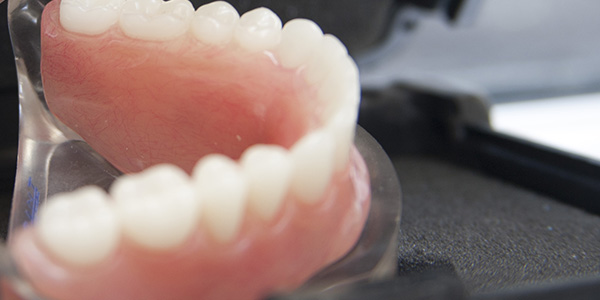Partial Dentures
Partial dentures are removable meaning they are not fixed and can be inserted and removed at your convenience. This works by using the remaining teeth for retention thus retaining and stabilising the denture so that it doesn’t move or fall down.

Before a partial denture is made generally it is standard procedure to have your remaining teeth checked to insure they are in good condition to withstand the loads a partial denture produces, once all restorations have been completed you are ready for impressions.
Partial dentures come in a few different materials, but the most common is either Acrylic or Chrome (metal).
Acrylic partial dentures are generally the most cost effective and can be made within a short period of time. Other advantages are that they can be relined, extra teeth added to them (in case you lose any more natural teeth) and can be used as a temporary denture before implants are fitted.
Some of the disadvantages are that the acrylic denture base is somewhat weaker due to their irregular shape and tend to break frequently, especially those made for the lower jaw. In order to counteract this, the acrylic is usually quite thick which can take a little extra time to get used to.
Chrome Dentures
Chrome dentures however, are more a long term material for a partial denture as the frame and required components are cast in one piece.
This is just one of the advantages chrome dentures have over acrylic. The components of a partial denture rest on soft tissue and natural teeth making the denture both tooth and tissue borne (supported) thus distributing the load evenly during mastication (eating) which helps protect the underlying bone.
Due to the strength of the chrome it can be made in a smaller more efficient design making it more comfortable to wear and live with, whilst giving you the security of knowing it has less chance of breaking.

